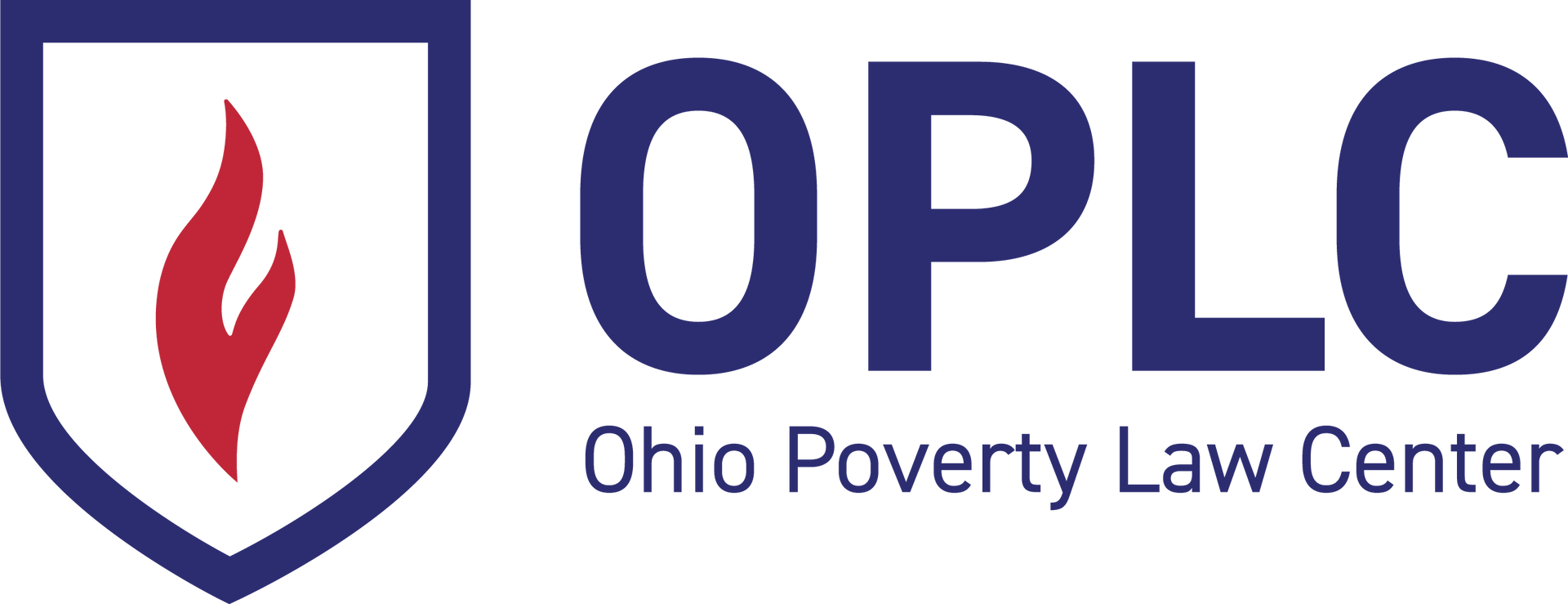OHIO SUPREME COURT WILL DECIDE THE FUTURE OF PAYDAY LENDING IN OHIO – OR NOT
On December 10, Ohio legal aid advocates, represented by Julie Robie from the Legal Aid Society of Cleveland, participated in an oral argument before the Ohio Supreme Court in the case of Ohio Neighborhood Finance, dba Cashland v. Scott. What is notable about our participation is that legal aid did not represent any party involved in this case. Cashland had its stable of expensive big firm lawyers to brief and argue the case. Mr. Scott has long since gone on with his life, having made no appearances in any of the courts hearing his case. Legal Aid and our allies appeared as amici, or friends of the court, to give the Ohio Supreme Court the consumer perspective on the issues involved in this important case.
This case is important for consumers because it challenges the current business model of payday lending in Ohio. As some of you may know, in 2008, Ohio adopted a statute reforming payday lending, repealing the old business model that allowed short term, single pay loans with 391% APR. Ohio has never used the term “payday” loans in its statutes – when enabled in 1995, they were “loans by check cashing lender licensees.” These old loans were eliminated, and replaced with “short term loans.” The loan period for short term loans must be a minimum of 31 days, with a maximum APR of 28%.
Despite legislative reform, payday lending continues as usual for Ohio borrowers. No lenders are licensed under, or making loans under, the Short Term Loan Act. Instead, lenders like Cashland made deliberate business decisions to continue making payday loans, shoehorning into other lending licenses and making convoluted legal arguments to justify evasion of Ohio law. The Elyria Municipal Court and the 9th District Court of Appeals said Cashland cannot make payday loans under the lending license they currently hold. Now it is up to the Ohio Supreme Court to say “yes” or “no.”
But if the Ohio Supreme Court says no – no payday loans – what will this mean for Ohio borrowers? No more payday loans, at least in this current form? I wish. Unfortunately, the consumer small loan industry will continue to flourish. Even as we await the Cashland decision, cash-strapped Ohioans can get a short term consumer installment loan secured by a postdated check. Or they can stop in their friendly neighborhood auto title loan shop and walk out with a loan secured by the title to their car. And all of this and more can be done over the internet and without leaving the comfort and convenience of home. This market, “the financially underserved market”, generated $89 billion in fee and interest revenue in 2012. This industry is limited only by the ingenuity of its management teams, clever legal staff, and the greed of its funders and investors.
Under the veneer of industry best practices and superior customer service, the short term loan industry is making money selling credit to struggling families as a means to bridge the income gap. None of these financial products help struggling families address the underlying problems of chronic income shortfalls, or help families build wealth so they can move up the socio-economic ladder. Despite very credible studies showing that the economic activity generated by this industry results in a net loss to the economy, this industry will thrive until policymakers step up to the plate.
Stepping up to the plate doesn’t just mean better regulation of the industry and more consumer protections. Enforcement of existing consumer protection laws and the political will to stop predatory lending will always lag behind this constantly moving target. Stepping up to the plate means policy makers must address the much tougher issues involved in closing the income gap between low wages and what it really takes to make ends meet.
The political struggle to expand Medicaid, the Governor’s refusal to apply for a federal waiver to waive work requirements for food stamp recipients, the shrinking Ohio Works First program, continued high unemployment rates and Congress’s refusal to extend Emergency Unemployment Compensation all indicate that Ohioans will not soon see any real shift toward policies that support working families in the struggle to not just to make ends meet, but to make a better life for themselves and their children.
In the meantime, 46 Credit Services Organizations, 234 Ohio Mortgage Loan Registrants with 1202 Mortgage Loan registrant branch offices, 32 Small Loan Licensees with 171 Small Loan licensee branch offices, 150 licensed pawnbrokers with 178 branch store fronts (as of December 19) will be in our neighborhoods or at our fingertips to help us get the money we need. As long as we can afford their exorbitant fees and interest.
